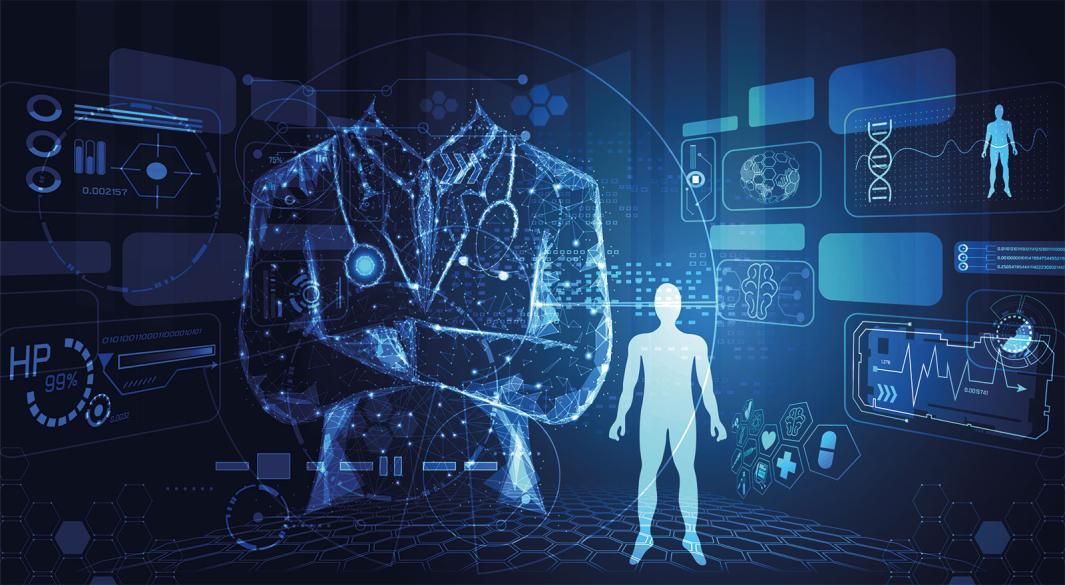AI and the Future of Healthcare: A Glimpse into a Patient-Centered Paradigm
Artificial intelligence (AI) is rapidly transforming the healthcare industry, promising a future where patient-centered care takes center stage. This article explores the transformative role of AI in healthcare, highlighting its potential to revolutionize patient care, enhance efficiency, and improve accessibility.

AI In Healthcare: Current Landscape
AI is already making significant strides in healthcare, with applications ranging from diagnosis and treatment to drug discovery and patient engagement.
Diagnosis And Treatment
- AI algorithms analyze vast amounts of medical data, including electronic health records, lab results, and imaging scans, to aid in diagnosis.
- These algorithms can predict disease progression, identify high-risk patients, and personalize treatment plans, leading to improved patient outcomes.
Medical Imaging
- AI-powered image analysis tools assist healthcare professionals in detecting anomalies and making accurate diagnoses.
- These tools can analyze medical images such as X-rays, CT scans, and MRIs, highlighting subtle changes that may be missed by the human eye.
Drug Discovery
- AI accelerates the drug discovery process by analyzing molecular structures and predicting drug interactions.
- AI algorithms can identify potential drug targets, design new drugs, and predict their efficacy and safety, reducing the time and cost of drug development.
Patient Engagement
- AI-driven chatbots and virtual assistants provide real-time support, medication reminders, and health information to patients.
- These tools empower patients to take an active role in their healthcare, improving adherence to treatment plans and promoting self-management.
Benefits Of AI In Patient-Centered Care
AI holds immense promise in shaping a patient-centered healthcare paradigm, offering numerous benefits to patients and healthcare providers alike.
Improved Diagnosis And Treatment
- AI algorithms can detect diseases at an early stage, enabling timely intervention and better outcomes.
- AI-powered personalized treatment plans are more effective and have fewer side effects, leading to improved patient satisfaction.
Enhanced Patient Engagement
- AI-enabled wearable devices and sensors monitor vital signs, activity levels, and other health parameters, empowering patients to actively participate in their care.
- AI-powered chatbots and virtual assistants provide 24/7 support, answering patient queries and addressing concerns promptly, improving patient satisfaction and adherence to treatment plans.
Increased Accessibility And Efficiency
- AI-driven telemedicine platforms enable remote consultations, making healthcare accessible to individuals in remote areas or with limited mobility.
- AI automates administrative tasks such as scheduling appointments, processing insurance claims, and managing medical records, reducing the burden on healthcare providers and improving efficiency.
Challenges And Ethical Considerations
While AI holds immense promise, it also presents challenges and ethical considerations that need to be addressed to ensure its responsible and ethical use in healthcare.
Data Privacy And Security
- Ensuring the secure storage and transmission of sensitive patient data is crucial to maintain patient trust and prevent data breaches.
- Implementing robust data encryption and access control measures is essential to protect patient information.
Algorithmic Bias
- AI algorithms must be trained on diverse and representative datasets to avoid bias against certain populations or demographics.
- Regular audits and monitoring of AI systems are necessary to identify and mitigate potential biases.
Human-AI Collaboration
- Striking the right balance between AI and human expertise is crucial to ensure that AI complements healthcare professionals' skills rather than replaces them.
- Fostering a collaborative environment where AI and healthcare providers work together can lead to better patient outcomes.

AI is poised to revolutionize healthcare, ushering in a new era of patient-centered care. By harnessing the power of AI, healthcare providers can deliver more accurate diagnoses, personalized treatments, and enhanced patient engagement. However, it is imperative to address the challenges and ethical considerations associated with AI to ensure its responsible and ethical use. Continued research, collaboration, and ethical considerations are essential to unlocking the full potential of AI in healthcare and improving the lives of patients worldwide.
YesNo

Leave a Reply